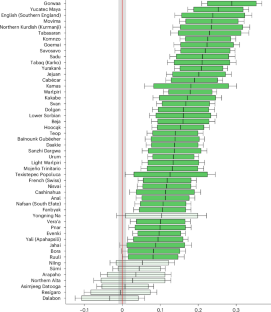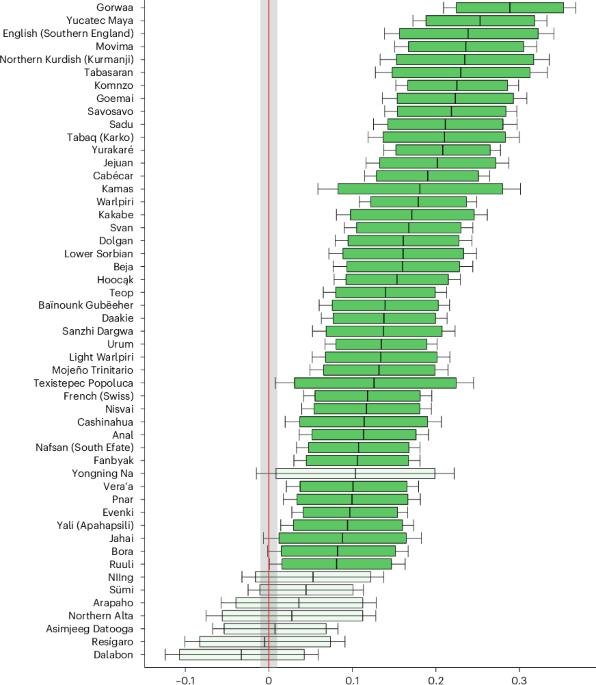非 WEIRD 语言中辅音的词首延长
IF 21.4
1区 心理学
Q1 MULTIDISCIPLINARY SCIENCES
引用次数: 0
摘要
我们发现,在 51 种不同语言的样本中,单词开头的辅音比非开头的辅音平均长 13 毫秒。考虑到这一发现在世界各地的语言中都很稳定,我们认为这一效应有助于在连续语流中标记不同单词的边界。本文章由计算机程序翻译,如有差异,请以英文原文为准。


Word-initial lengthening of consonants in non-WEIRD languages
We found that across a sample of 51 diverse languages, consonants at the beginning of words are on average 13 ms longer than their non-initial counterparts. Considering that this finding is robust across languages from all over the world, we argue that this effect helps to mark the boundaries of different words in the continuous stream of speech.
求助全文
通过发布文献求助,成功后即可免费获取论文全文。
去求助
来源期刊

Nature Human Behaviour
Psychology-Social Psychology
CiteScore
36.80
自引率
1.00%
发文量
227
期刊介绍:
Nature Human Behaviour is a journal that focuses on publishing research of outstanding significance into any aspect of human behavior.The research can cover various areas such as psychological, biological, and social bases of human behavior.It also includes the study of origins, development, and disorders related to human behavior.The primary aim of the journal is to increase the visibility of research in the field and enhance its societal reach and impact.
 求助内容:
求助内容: 应助结果提醒方式:
应助结果提醒方式:


